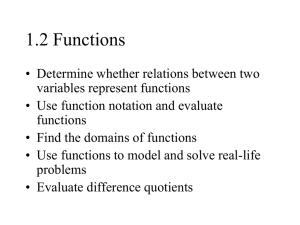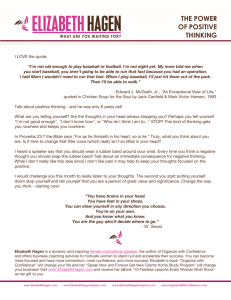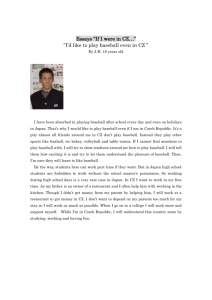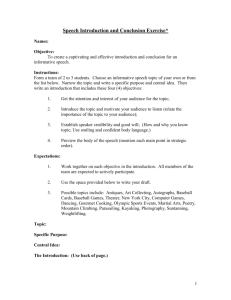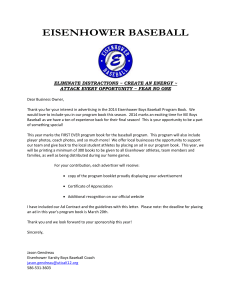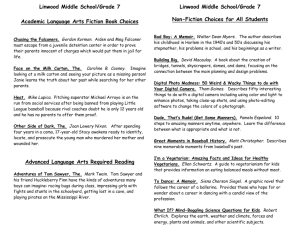Past Time: Baseball as History By Jules Tygiel New York
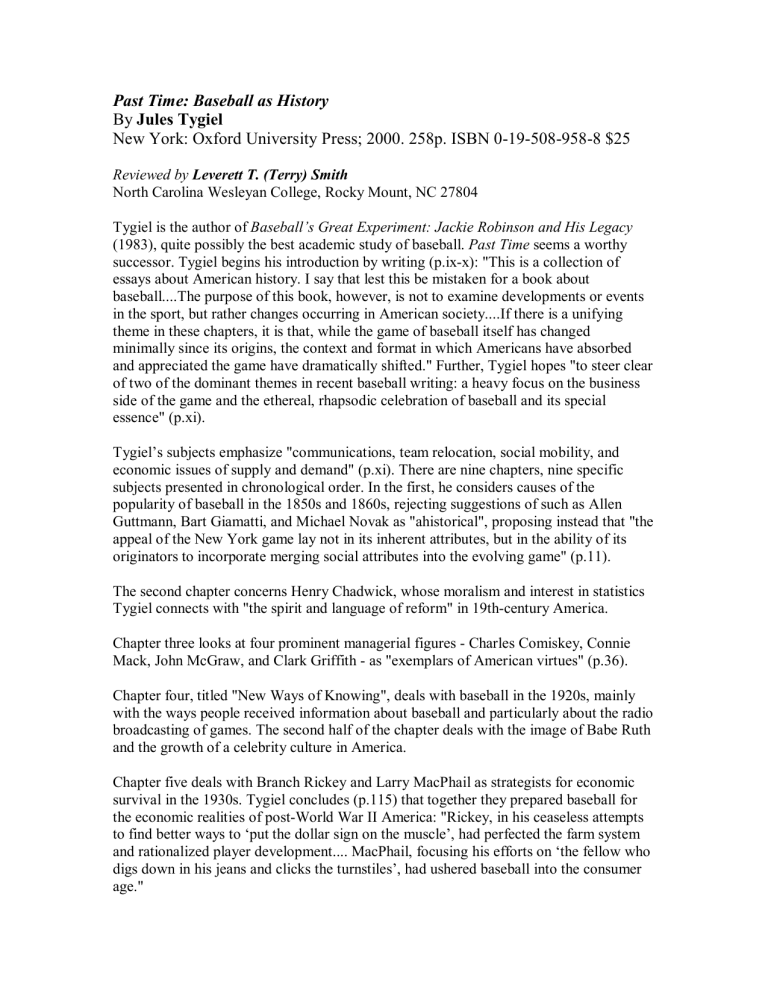
Past Time: Baseball as History
By Jules Tygiel
New York: Oxford University Press; 2000. 258p. ISBN 0-19-508-958-8 $25
Reviewed by Leverett T. (Terry) Smith
North Carolina Wesleyan College, Rocky Mount, NC 27804
Tygiel is the author of Baseball’s Great Experiment: Jackie Robinson and His Legacy
(1983), quite possibly the best academic study of baseball. Past Time seems a worthy successor. Tygiel begins his introduction by writing (p.ix-x): "This is a collection of essays about American history. I say that lest this be mistaken for a book about baseball....The purpose of this book, however, is not to examine developments or events in the sport, but rather changes occurring in American society....If there is a unifying theme in these chapters, it is that, while the game of baseball itself has changed minimally since its origins, the context and format in which Americans have absorbed and appreciated the game have dramatically shifted." Further, Tygiel hopes "to steer clear of two of the dominant themes in recent baseball writing: a heavy focus on the business side of the game and the ethereal, rhapsodic celebration of baseball and its special essence" (p.xi).
Tygiel’s subjects emphasize "communications, team relocation, social mobility, and economic issues of supply and demand" (p.xi). There are nine chapters, nine specific subjects presented in chronological order. In the first, he considers causes of the popularity of baseball in the 1850s and 1860s, rejecting suggestions of such as Allen
Guttmann, Bart Giamatti, and Michael Novak as "ahistorical", proposing instead that "the appeal of the New York game lay not in its inherent attributes, but in the ability of its originators to incorporate merging social attributes into the evolving game" (p.11).
The second chapter concerns Henry Chadwick, whose moralism and interest in statistics
Tygiel connects with "the spirit and language of reform" in 19th-century America.
Chapter three looks at four prominent managerial figures - Charles Comiskey, Connie
Mack, John McGraw, and Clark Griffith - as "exemplars of American virtues" (p.36).
Chapter four, titled "New Ways of Knowing", deals with baseball in the 1920s, mainly with the ways people received information about baseball and particularly about the radio broadcasting of games. The second half of the chapter deals with the image of Babe Ruth and the growth of a celebrity culture in America.
Chapter five deals with Branch Rickey and Larry MacPhail as strategists for economic survival in the 1930s. Tygiel concludes (p.115) that together they prepared baseball for the economic realities of post-World War II America: "Rickey, in his ceaseless attempts to find better ways to ‘put the dollar sign on the muscle’, had perfected the farm system and rationalized player development.... MacPhail, focusing his efforts on ‘the fellow who digs down in his jeans and clicks the turnstiles’, had ushered baseball into the consumer age."
Chapter six, on black baseball, shows how it was exemplary of patterns of segregation and African-American responses to it.
The last three chapters deal with the game after World War II. Chapter seven considers the circumstances surrounding Bobby Thomson’s dramatic pennant-winning home run in
1951. Tygiel calls it "a revealing glimpse of mid-century America" (p.145), citing urban blight, the advent of television, racial integration, and the Cold War as crucial elements of both the event and the era.
Chapter eight asks us to consider the "dramatic reconfiguration of the baseball map" between 1953 and 1972, not as the abandonment of loyal fans but as part of "the demographic shifts accelerated by World War II and its aftermath" (p.166-167).
The final chapter deals with the "explosion of vicarious fan participation" (p.200) in the
1980s as both "a reflection of the era of Ronald Reagan" and an accommodation of 1960s countercultural thinking with the "American mainstream" (p.219).
This is a fine book, clearly written and thoughtful. I do wonder about Tygiel’s statement that baseball "has reflected broader changes in society" (p.xi). Shouldn’t baseball history
- any kind of history - do more than this? Donald Mrozek’s Sport and American
Mentality, 1880-1910 (1983) concludes with these words (p.235): "Sport was not a mirror of society but a part of it. More than a microcosm of other elements, sport was a new pattern in the social fabric." The best use of our discoveries in the history of baseball may be not so much to show how they reflect our understanding of the issues of the larger community as to test the validity of that understanding.
